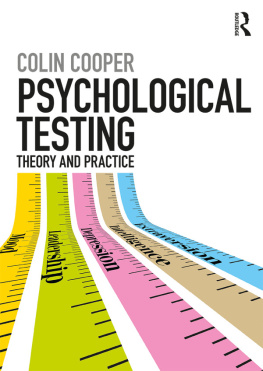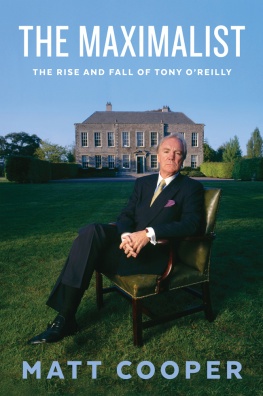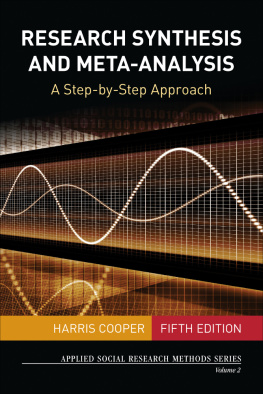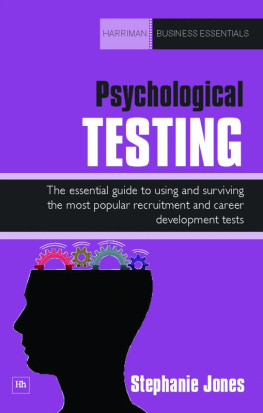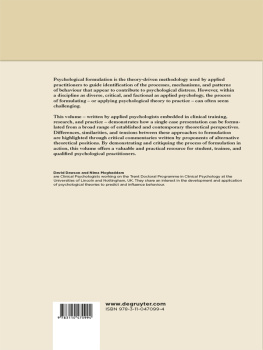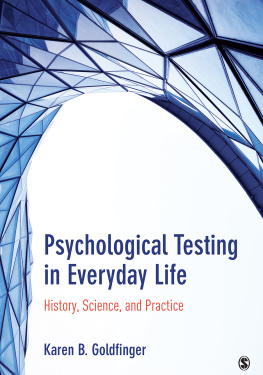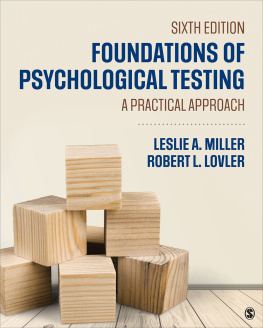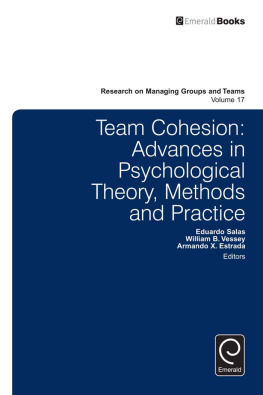Cooper - Psychological testing : theory and practice
Here you can read online Cooper - Psychological testing : theory and practice full text of the book (entire story) in english for free. Download pdf and epub, get meaning, cover and reviews about this ebook. year: 2019, publisher: Routledge, genre: Children. Description of the work, (preface) as well as reviews are available. Best literature library LitArk.com created for fans of good reading and offers a wide selection of genres:
Romance novel
Science fiction
Adventure
Detective
Science
History
Home and family
Prose
Art
Politics
Computer
Non-fiction
Religion
Business
Children
Humor
Choose a favorite category and find really read worthwhile books. Enjoy immersion in the world of imagination, feel the emotions of the characters or learn something new for yourself, make an fascinating discovery.
Psychological testing : theory and practice: summary, description and annotation
We offer to read an annotation, description, summary or preface (depends on what the author of the book "Psychological testing : theory and practice" wrote himself). If you haven't found the necessary information about the book — write in the comments, we will try to find it.
Psychological testing : theory and practice — read online for free the complete book (whole text) full work
Below is the text of the book, divided by pages. System saving the place of the last page read, allows you to conveniently read the book "Psychological testing : theory and practice" online for free, without having to search again every time where you left off. Put a bookmark, and you can go to the page where you finished reading at any time.
Font size:
Interval:
Bookmark:

Colin Coopers book is a splendid synthesis of the theory, statistics and applications of psychometrics. We are taken on a journey through this measurement of the human spirit, spanning basic concepts (reliability/validity), workhorse statistics (factor analyses), more recent techniques (item response theory), how to interpret test scores and, even, how to develop scales. But there is more: this is a hands-on book each chapter comes with a datasheet on which to practice newly-acquired knowledge of psychometrics. Students, lecturers, test developers and practitioners will delight in this charming book. Professor Philip J Corr, City, University of London, UK
What a gem of a book this is! I am delighted to recommend Colin Coopers Psychological Testing: Theory and Practice to students, researchers, clinicians, and educators. While the book eschews unnecessary diversions into mathematical and statistical obscurities, it also steers clear of the superficial, homespun presentations that sacrifice rigour in the altar of unrewarding readability. Without a doubt, this is one of the most accessible, effective, and comprehensive introductions to psychological testing in the market today. Professor K. V. Petrides, London Psychometric Laboratory, University College London, UK
Colin Cooper has written the down-to-earth book that many of us have been waiting for on the very complex and often misunderstood field of psychology tests and assessment. It is grounded in both the established cornerstones of psychological testing and contemporary developments necessary to understand how tests are made, evaluated, and used in research and clinical assessment. This book will be of particular relevance for undergraduate and graduate university courses in psychological tests and measurement. Dr. Don Saklofske, Western University, Canada
PSYCHOLOGICAL TESTING
Psychological tests are everywhere. They are widely used by practitioners, researchers, clinicians and educators anyone, in fact, who needs to measure various aspects of personality, cognitive abilities, mood and suchlike. Psychometrics is the science of psychological assessment. It covers the construction, use and interpretation of psychological tests of all kinds from simple questionnaires measuring personality, moods and attitudes, through to specialised tests measuring IQ and other mental abilities.
Psychological Testing: Theory and Practice provides students, test users, test developers, practitioners and researchers from the social sciences, education and health with an evaluative guide to choosing, using, interpreting and developing tests. Its aim is to give readers a thorough grasp of the principles and limitations of testing, together with the necessary methodological detail. Unusually for an introductory text, it includes coverage of several cutting-edge techniques. If you find mathematics frightening and statistics dull, this engaging text will help you to understand the fundamental principles of psychometrics that underpin the measurement of any human characteristic using any psychological test.
The book is accompanied by additional resources, including a set of spreadsheets which use simulated data and other techniques to illustrate important issues, and allow users to understand how various statistical procedures work, without getting bogged down in mathematical detail. These are fully integrated into the text.
This is an essential introduction for all students of psychology and related disciplines, as well as a useful resource for practitioners and those seeking accreditation in psychological testing.
Dr Colin Cooper has researched and taught psychometrics and individual differences at Queens University, Belfast for 20 years. He has published widely in these fields and has been extensively involved in test design and consultancy.
Psychological
Testing
THEORY AND PRACTICE
COLIN COOPER

First published 2019
by Routledge
2 Park Square, Milton Park, Abingdon, Oxon OX14 4RN
and by Routledge
711 Third Avenue, New York, NY 10017
Routledge is an imprint of the Taylor & Francis Group, an informa business
2019 Colin Cooper
The right of Colin Cooper to be identified as author of this work has been asserted by him in accordance with sections 77 and 78 of the Copyright, Designs and Patents Act 1988.
All rights reserved. No part of this book may be reprinted or reproduced or utilised in any form or by any electronic, mechanical, or other means, now known or hereafter invented, including photocopying and recording, or in any information storage or retrieval system, without permission in writing from the publishers.
Trademark notice: Product or corporate names may be trademarks or registered trademarks, and are used only for identification and explanation without intent to infringe.
British Library Cataloguing-in-Publication Data
A catalogue record for this book is available from the British Library
Library of Congress Cataloging-in-Publication Data
A catalog record for this book has been requested
ISBN: 978-1-138-22888-7 (hbk)
ISBN: 978-1-138-22889-4 (pbk)
ISBN: 978-1-315-39134-2 (ebk)
Typeset in Avenir, Bell and Bembo
by Swales & Willis Ltd, Exeter, Devon, UK
Visit the eResources: www.routledge.com/9781138228894
DEDICATION
To Wesley
Spreadsheets available at www.routledge.com/9781138228894
Psychological tests are everywhere. Job applicants complete personality tests and have their cognitive abilities or leadership skills assessed. Health professionals use them to assess dementia and other clinical conditions. Children may be assessed for dyslexia, developmental difficulties or behavioural problems. Researchers in psychology, medicine, education and other disciplines routinely measure self-esteem, personality, cognitive abilities, attitudes, moods, emotional states and a whole host of other characteristics. And we even complete them in our spare time to try to learn more about ourselves. But how confident can we be that the scores on such tests really tell us anything useful? How are tests constructed and used? How should test scores be used to draw inferences about people? How can we decide which tests say something meaningful and which are no more useful than reading tea leaves?
My interest in psychological assessment began in the 1970s in Exeter, when Paul Kline (the UKs first professor of psychometrics) introduced this most challenging of subjects. For psychometrics is a brave attempt to quantify all that is essentially human our personality, mental abilities, moods and motives. What could be more important for the science and practice of psychology than that?
There are two types of psychometrics books. Some are aimed at those who plan to develop, administer and use tests, scales, questionnaires and other assessments; they may not be interested in the statistical minutiae but do need a conceptual grasp of the theory which underpins psychological tests so that they can locate, evaluate, administer, score and interpret them properly. Other books are far more technical. They are written for mathematicians rather than psychologists, are often highly specialised, bristle with fierce equations and say little or nothing about how tests are actually used.
This book falls firmly into the first category. It is designed to give anyone who uses or develops tests a sound, fairly detailed and up-to-date grasp of the principles of psychological assessment together with suggestions of how tests may be developed and used in real life and how techniques such as factor analysis may be used to build hierarchical models of ability and personality, how it can be used to develop mood scales and so on. Although some of the basic theory underlying test use was developed half a century ago, new developments are continually being made. As well as covering the basics, this book also considers new developments, such as item response theory, alternatives to coefficient alpha for calculating reliability, and parallel analysis. It also considers (and attempts to evaluate) some devastating criticisms of the whole rationale of psychological assessment from Joel Michell.
Next pageFont size:
Interval:
Bookmark:
Similar books «Psychological testing : theory and practice»
Look at similar books to Psychological testing : theory and practice. We have selected literature similar in name and meaning in the hope of providing readers with more options to find new, interesting, not yet read works.
Discussion, reviews of the book Psychological testing : theory and practice and just readers' own opinions. Leave your comments, write what you think about the work, its meaning or the main characters. Specify what exactly you liked and what you didn't like, and why you think so.

